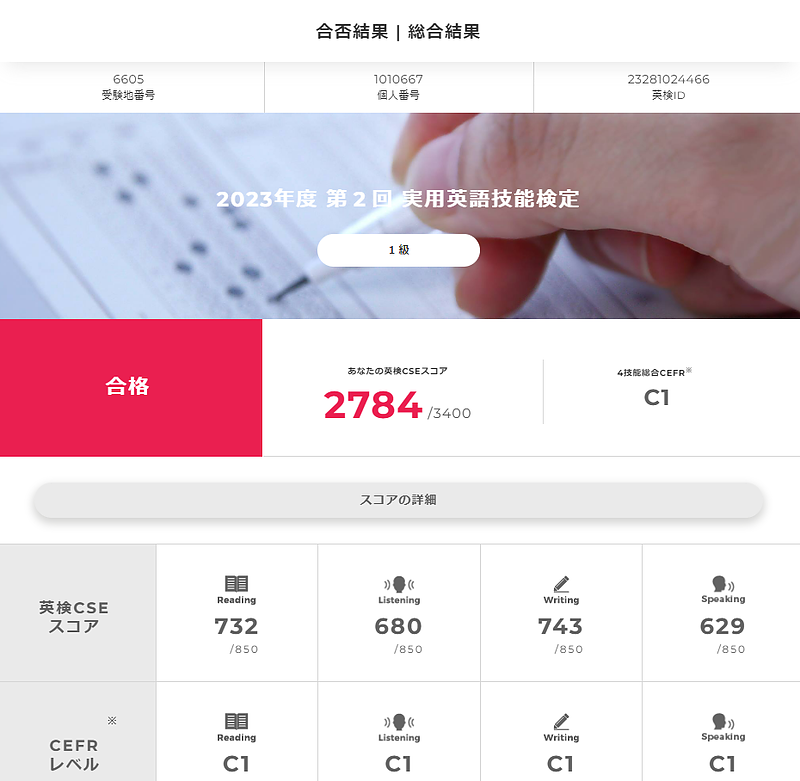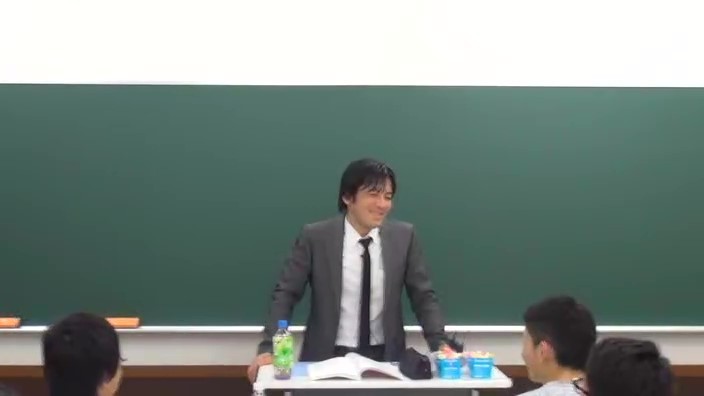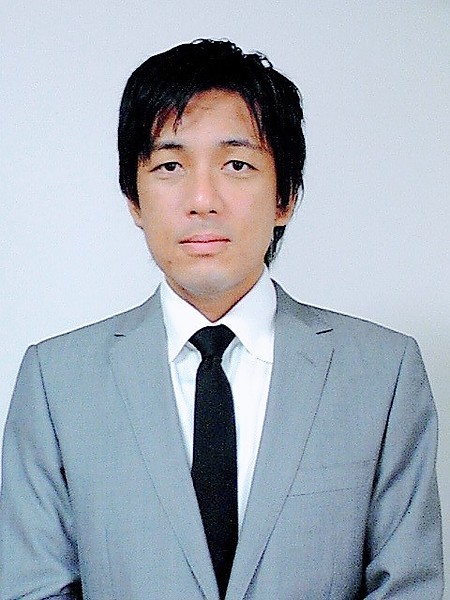大学入試 アウトプット英単語 ②
本記事は独学・国内学習による
英検1級保持者が書きました。
今回は、問1下線部(1) を考察します。
本記事では下線を付与できないため背景色をつけています。
駿台予備校と河合塾の模範解答も示します。
解答例を精査すると両者の解釈が割れていることに気付くはず。
どちらかが誤読したことになるのです。
皆さんはどのように解しますか。
【京都大学 2023】問1
次の英文を読み, 下線部(1)~(3)を和訳しなさい。
Of course, one of the features of modern life, mostly thanks to the internet, is that we all have to constantly make choices about what to pay attention to ― what to spend our time on, even if it is for just a few minutes. Many of us today have instant access to far more information than we can ever hope to process, which has meant that our average attention span is getting shorter. (1)The more ‘stuff’ we have to think about and focus on, the less time we are able to devote to each particular thing. People are quick to blame the internet for this reduced attention span, but while social media certainly plays its part, it is not entirely to blame. This trend can be traced back to when our world first started to become connected early in the last century as technology gave us access to an ever-increasing amount of information.
Today we are exposed to twenty-four-hour breaking news and an exponential rise in the amount of produced and consumed information. As the number of different issues that form our collective public discourse continues to increase, the amount of time and attention we are able to devote to each one inevitably gets compressed. (2)It isn’t that our total engagement with all this information is any less, but rather that as the information competing for our attention becomes denser our attention gets spread more thinly, with the result that public debate becomes increasingly fragmented and superficial. The more quickly we switch between topics, the more quickly we lose interest in the previous one. We then find ourselves increasingly engaging only with those subjects that interest us, leading us to become less broadly informed ― and potentially less confident in evaluating information outside of the spheres with which we are most familiar.
I am not advocating that we should all devote more time and attention to every topic we encounter, whether we are exposed to information through our family, friends or work colleagues, or by reading books and magazines, the mainstream media, online or on social media, as that would be impossible. But we must learn how to discriminate between what is important, useful and interesting, what is deserving of our attention and time, and what is not. As Feynman so emphatically pointed out, in his response to the journalist’s request for a pithy summary of his Nobel Prize work, the topics we do choose to spend more time thinking about and digesting will inevitably require a certain level of commitment. In science, we know that to truly understand a subject requires time and effort. The reward is that concepts which may at first have seemed impenetrable turn out to be comprehensible, straightforward, sometimes even simple. At worst, we acknowledge that they are indeed complicated ― not because we are unable to think them through thoroughly and make sense of them, but because they just are complicated.
So, this is the takeaway for us all in daily life. Do you need a PhD in climate science to know that recycling your rubbish is better for the planet than throwing it all in the ocean? Of course not. (3)But taking some time to dig a little deeper into a subject and weighing up the evidence, the pros and cons about an issue, before making up your mind can help you make better decisions in the long run.
Most things in life are difficult to begin with. But, if you’re prepared to try, you can cope with far more than you imagine.
・modern life :現代の生活
・features :特徴
・constantly :絶えず
・make choices :選択をする
・pay attention to :注意を払う
・spend our time on :時間を費やす
・thanks to :〜のおかげで
・internet :インターネット
・instant access :即時アクセス
・information :情報
・process :処理する
・average attention span :平均的な注意力の持続時間
・reduced attention span :注意力の低下
・social media :ソーシャルメディア
・entirely :完全に
・blame :責める
・trend :傾向
・connected :つながる
・early in the last century :この世紀初頭
・technology :技術
・exposed to :さらされる
・breaking news :緊急ニュース
・exponential rise :指数関数的な増加
・produced and consumed :生産され消費される
・collective public discourse :集団的な公共論議
・compressed :圧縮された
・engagement :関与
・competing for :競争する
・attention gets spread :注意が薄く広がる
・fragmented :断片化した
・superficial :表面的な
・switch between :切り替える
・engage with :関わる
・broadly informed :広く情報を得る
・potentially :潜在的に
・confident in evaluating :評価する自信を持つ
・spheres :領域
・encounter :出会う
・weigh up :検討する
・evidence :証拠
・pros and cons :利点と欠点
・making up your mind :決断する
・commitment :献身
・truly understand :真に理解する
・impenetrable :難解な
・comprehend :理解する
・straightforward :簡単な
・acknowledge :認める
・difficult to begin with :最初は難しい
・cope with :対処する
・imagine :想像する
・PhD in climate science :気候科学の博士号
・recycling :リサイクル
・rubbish :ゴミ
・throwing :捨てる
・taking some time :時間を割く
・dig a little deeper :少し掘り下げる
・issue :問題
・long run :長期的に
・prepared to try :試みる覚悟がある
・cope with :対処する
【駿台 模範答案】
私たちが考え, 集中すべき「もの」が多くなればなるほど, それぞれの特定の事柄に対して費やすことができる時間は少なくなる。このように注意が持続する時間が減ったことで, 人々はすぐにインターネットを非難するが, ソーシャルメディアは確かに一端をになっているものの, そこに全ての責任があるわけではない。
【河合塾 模範解答】
(1) 私たちが考え,注目をする「物事」が増えれば増えるほど,その分私たちが個々の事柄に割くことのできる時間は少なくなる。このように個々に注意を向ける時間が減ったことを,人々はすぐにインターネットのせいにするが,ソーシャルメディアは確かに関与してはいるものの,それだけに非があるわけではない。
(2) だからといって,こうした情報すべてに対する私たちの関わり全体がいささかでも減っているわけではなく,むしろ,私たちの注目を引こうと競い合う情報が高密度になればなるほど,私たちの注意はより薄く広がり,その結果として国民的議論はますますもって断片的かつ表面的なものとなるということなのだ。
(3) だが,時間をかけてあるテーマを少し掘り下げ,ある問題についての証拠,良し悪しを比較検討し,しかる後に自分の態度を決めることによって,長い目で見てより良い決断を下すことができる。
下線部(1)の焦点(採点基準)は have to の解釈です。
The more ‘stuff’ we have to think about and focus on, the less time we are able to devote to each particular thing. People are quick to blame the internet for this reduced attention span, but while social media certainly plays its part, it is not entirely to blame.
【駿台の解釈】
The more ‘stuff’ we have to think about and focus on, the less time we are able to devote to each particular thing.
<have to do> と解しています。
【河合塾の解釈】
The more ‘stuff’ / we have ●<to think about and focus on>, the less time we are able to devote to each particular thing.
<have + to 不定詞> と解しています。
私は河合塾の解釈が正しいと判断します。
問題の箇所は京都大学の出題の意図・問題の焦点でもあります。
《私の捉え方》
現代人の多くが
「情報過多」
であることを第1,2文で述べています。
しかし, この状況が
「より多くの情報を考え注意を払わねばならない」
状況を生じさせることには必ずしも繋がらないはずです。
「注意を払う」は意志を伴うからです。
ちなみに下線部の
focus on
は第1文,
pay attention to
の表現展開(言い換え)です。
容易にアクセスできる情報が増えたとしても,
人はそれらを意図的に遮断・制限できるのです。
実際, 第1文で筆者はこれを言及しています。
we all have to constantly make choices about what to pay attention to
make choices
は意志動詞で, ここでは
「情報の取捨選択」
の意です。
次の両者は個人がコントロール支配下か否かで
領域が異なることを意識してください。
★「情報が溢れかえる」= 不可抗力
★「情報の取捨選択」 = 意図・行動の範疇
下線部(1)は第1パラグラフ全体の文意を踏まえて
解する必要があるということです。
次の反論があるかもしれません。
駿台の模範答案で,
「集中すべき「もの」が多くなればなるほど」
形容詞的用法の不定詞では
「~べき」と訳出する場合もある。
形容詞的用法の訳出として「~べき」という
日本語の妥当性に関しては脇に置きます。
試験本番で求められるのは,
「読解できたか否か」
ではありません。
「読解出来たことの証明」
が求められます。
もっと言えば,該当箇所が「偽りの have to」
であることを読み破ったと採点者に全力で
アピールせざるを得ないのは受験生の義務です。
この点は予備校講師であるなら, 基本中の基本です。
予備校講師にとっての最高名誉職が
模範解答作成チーム入りです。
その模範答案は予備校の威信と
頂点に君臨する講師の知性と誇りを賭けた作品です。
この作品だけは完璧でなければならないのです。
以上から僭越ながら、
駿台の『模範』答案は
控えめに言っても無難とは言い難く,
「筆が滑った」と判断します。
加えて,下線部直前の記述が決定打となります。
our average attention span is getting shorter
attension span
は第1文の動詞表現
pay attention to
の表現展開です。
下線部の
focus on
に表現が引き継がれています。
ここで駿台の解釈が破綻します。
【駿台 模範答案】
私たちが考え, 集中すべき「もの」が多くなればなるほど, それぞれの特定の事柄に対して費やすことができる時間は少なくなる。このように注意が持続する時間が減ったことで, 人々はすぐにインターネットを非難するが, ソーシャルメディアは確かに一端をになっているものの, そこに全ての責任があるわけではない。
下線部直前で,
「私たちが情報に対して注意を払う時間は縮小している」
と言っているため,下線部の
考え, 集中すべき「もの」が多くなればなるほど
の解釈が論理破城を起こしているのです。
時間的切迫感との闘いでもある試験本番では
このように馴染み深い語句に対して
「筆が滑る」
というミスが生じやすくなります。
実は私自身, 初見の解釈で誤読しました。
違和感を感じて念のため予断を捨てて
文章を見直しので自分のミスを修正できました。
「筆の滑り止め」戦略として先ず,
全ての設問に対して俯瞰することを心がけてください。
下線部や空所の前後のみで勝負するのは初級者です。
俯瞰とは全体像を捉えようという意識と姿勢です。
それは身体姿勢と直結します。
近視眼的意識は身体姿勢や浅い呼吸となって顕在化します。
これはリスニングの際に更に顕著になります。
何千人もの生徒さんを見て来たうえで,
これに関して、複数の英語講師と議論をして来た結果,
導き出した結論です。
受験生の皆さん。
「筆を滑らせない」ように深い呼吸と全体像を捉える
に相応しい身体姿勢を意識してください。
私の記事を読んでくれている生徒さんの合格を祈っています。
今後も英語学習に関わる情報、体験談を発信していきます。











